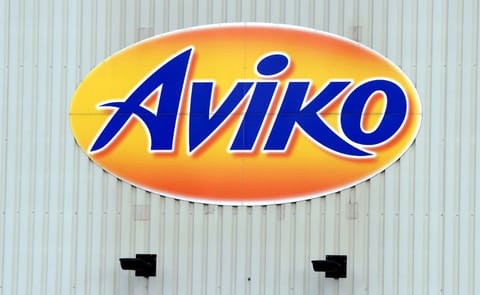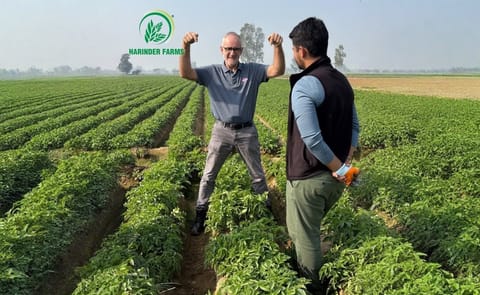Yara calls for urgent action to reduce Europe’s food dependency on Russia
Yara calls for urgent action to reduce Europe’s food dependency on Russia

Yara calls on the European Union and national governments to act urgently and decisively to ensure Europe reduces, and not strengthens, its dependency on Russia for food and fertilizers. A strong European fertilizer industry is crucial not only for ensuring food security in Europe and globally but also for ensuring that Europe can continue to take the lead in the green transition.
Svein Tore Holsether, President and Chief Executive Officer of Yara:
Fertilizers produced in Europe have a carbon footprint that is only half of global averages, also in comparison to Russian fertilizers.
Yara therefore joins the European Parliament and other stakeholders in calling for an EU strategy for fertilizers. The essential plant nutrients provided by mineral fertilizers are estimated to produce 50 percent of the food grown today.
A strategy for the European fertilizer industry is therefore a crucial step towards securing Europe’s strategic autonomy in food and agriculture. The EU’s package of solutions for the European fertilizer industry should include measures to:
Svein Tore Holsether, President and Chief Executive Officer of Yara:
"It is imperative that the war on Ukraine does not destroy the work towards a net-zero future. It is unthinkable that we will reach the climate targets without a strong, green European industry."Curtailed production in Europe reduces worldwide availability of fertilizers and has direct, negative consequences for the global food system and global food security. The European fertilizer sector is also crucial for a sustainable, resilient food system, both In Europe and globally.
"Instead of weakening the position of the European fertilizer industry, which is a frontrunner in decarbonization, we need massive, coordinated efforts to reach zero emissions, while at the same time reducing our dependencies on Russia."
Fertilizers produced in Europe have a carbon footprint that is only half of global averages, also in comparison to Russian fertilizers.
Yara therefore joins the European Parliament and other stakeholders in calling for an EU strategy for fertilizers. The essential plant nutrients provided by mineral fertilizers are estimated to produce 50 percent of the food grown today.
A strategy for the European fertilizer industry is therefore a crucial step towards securing Europe’s strategic autonomy in food and agriculture. The EU’s package of solutions for the European fertilizer industry should include measures to:
- Secure continued access to natural gas. Natural gas is key for producing fertilizers and is also crucial for lowering the environmental impact of other sectors.
For example, AdBlue, which is essentially made from natural gas, is a diesel exhaust fluid used in vehicles to reduce the release of harmful gases into the atmosphere. Virtually all modern diesel vehicles and machinery require AdBlue to function and around 95% of the AdBlue consumed in Europe is produced in Europe. - Accelerate the use of renewable energy. The transition to more sustainable and resilient fertilizer production by using renewable energy and recovered nutrients requires large-scale investments.
Innovation and investment support should be earmarked for the fertilizer sector to meet the three objectives of accelerating decarbonization; reducing our reliance on fossil fuels; and reducing our dependency on Russia. - Reinforce Europe's strategic autonomy in fertilizers. European authorities should prioritize the supply of raw materials for European fertilizer production to avoid new dependencies rather than lowering barriers or imports of finished fertilizers from Russia or elsewhere.
The Commission should also monitor and control the volumes of fertilizer products coming into Europe from Russia and Belarus, especially as Russian fertilizers have roughly twice the greenhouse emissions of fertilizers produced in Europe.
Like to receive news like this by email? Join and Subscribe!
Get the latest potato industry news straight to your WhatsApp. Join the PotatoPro WhatsApp Community!
Highlighted Company
Sponsored Content
Sponsored Content
Sponsored Content
Sponsored Content











